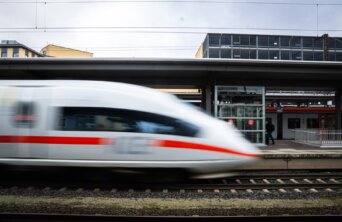- About
- Topics
- Story
- Magazine
- In-Depth
- Picks
- Opinion
- News
- Donate
- Signup for our newsletterOur Editors' Best PicksSend
Read, Debate: Engage.
| topic: | Economic Inclusion |
|---|---|
| located: | Germany, Portugal, Austria, Ireland, Italy |
| editor: | Abby Klinkenberg |
Germany is the latest European country to slash public transit prices in an effort to address the cost of living crisis surging across the continent. As energy prices have skyrocketed in the wake of the Ukraine invasion, German efforts to shift away from reliance on Russian oil and gas have grown to include a €2.5 billion initiative dubbed “9 for 90.” The cute moniker refers to the fact that anyone in Germany, resident or tourist, will be able to travel across the entire country for a mere €9 per month throughout the summer. Reminiscent of Austria’s “climate ticket” unveiled last autumn, Germany is incentivising climate-conscious behaviour while striving to ease its population’s growing concerns over cost of living and fuel prices.
According to a poll from German public broadcaster ARD, 44 percent of people in Germany say they either will definitely or probably take advantage of this new ticket plan. However, results also indicate a serious divide between urban and rural populations: while 60 percent of urban residents responded affirmatively to the initiative, only 40 percent of rural inhabitants shared the sentiment. Given denser public transit systems found in urban areas, it is clear that the initiative disproportionately benefits urban-dwellers, who make up 77 percent of the German population. While German Finance Minister Christian Linder recently unveiled plans to reduce gasoline prices, the German government will have to take additional care to ensure that rural communities receive support as they endure the country’s precarious economic situation.
Eager to avoid breakdowns in service and overcrowded train cars (particularly in the age of COVID-19), Deutsche Bahn, Germany’s national railway company, has committed to entering more regional trains into service from 1 June and extending routes to cover more destinations across the country.
On Monday, 23 May, alone, Deutsche Bahn sold over 200,000 tickets and millions more are expected to buy into the German summer of green transit. Reports have indicated that ticket websites have crashed upon the release of the tickets.
Germany is not the only European country striving to mitigate growing economic burdens on its population by means of public transit fare reductions: in May, Ireland and Italy have unveiled their own plans to encourage the eco-friendly use of public transportation systems. In Ireland, for the first time in nearly 75 years, public transit fares have been reduced as “part of a plan to reduce cost of living and encourage sustainable transport.” Although Ireland has issued less radical reductions than Germany, the country’s National Transport Authority has indicated that passenger numbers have already increased, which should be understood as a success for both the measure and the environment. Italy has also been experimenting with public transportation incentives in the form of a one-time public transport bonus “to soften the economic impact of the war in Ukraine.” In the Italian case, as part of a €14 billion economic aid package, students and workers earning under €35,000 per year will benefit from a €60 e-voucher to reduce the burden of ticket prices.
Germany’s “9 for 90” public transport plan will run out at the end of August and it remains unclear whether and in what form public transport support or subsidisation will continue into the autumn. Under the governing federal coalition, the neoliberal Free Democrats (FPD) control the transport and finance ministries - they will decide how long this green summer will last.
Photo by Christian Lue

